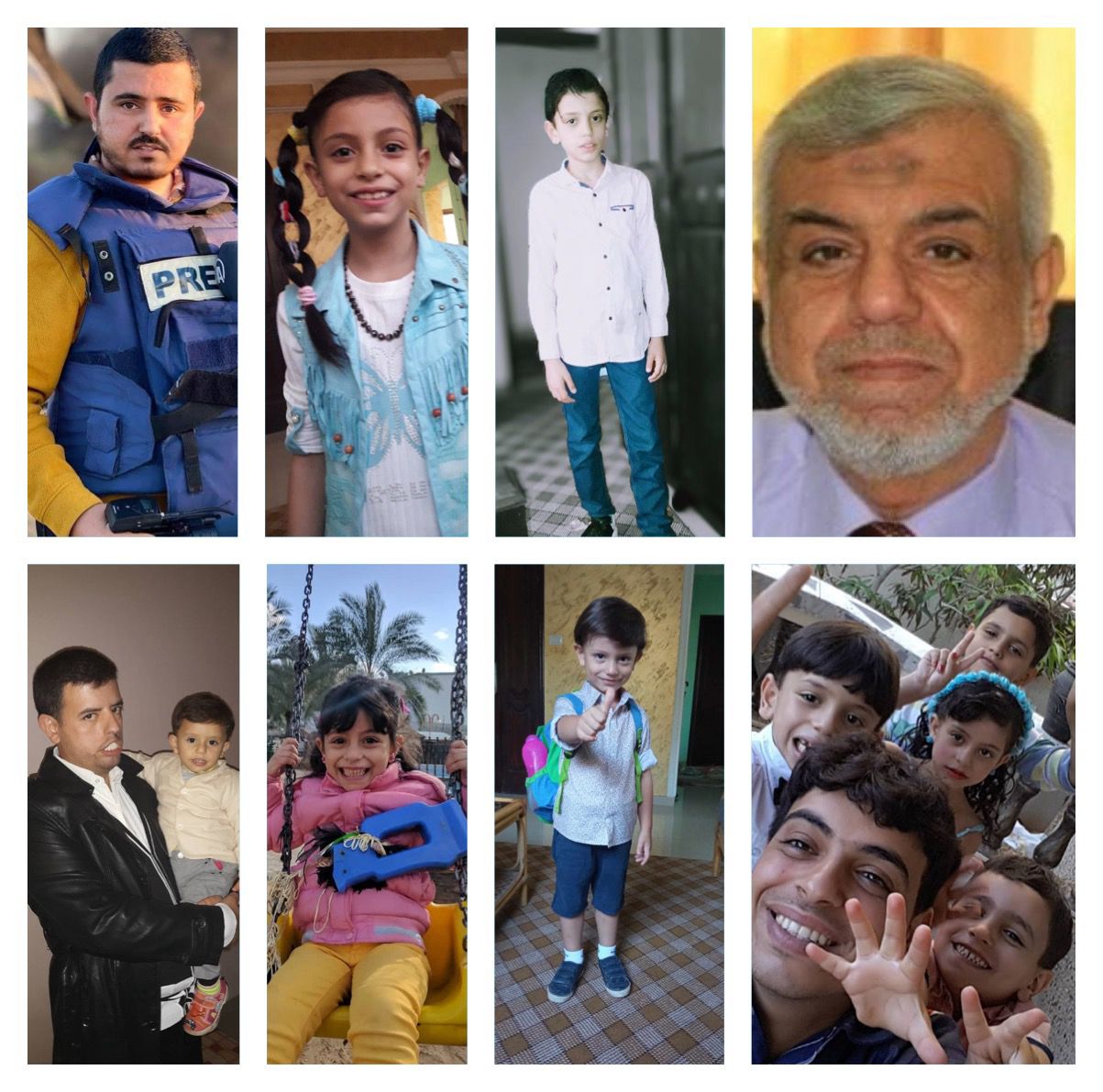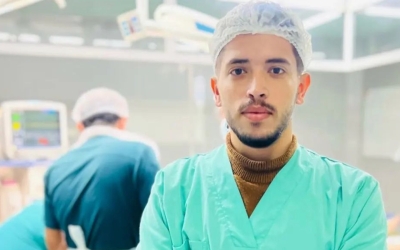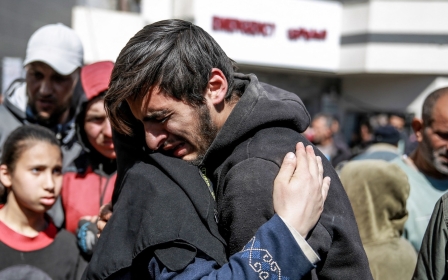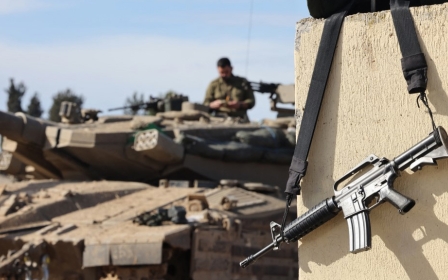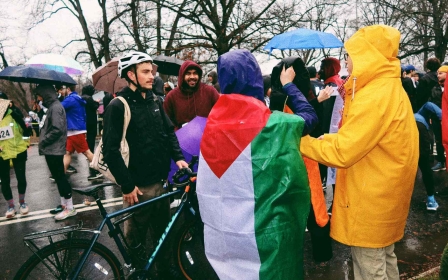War on Gaza: One woman mourns the loss of 50 family members in Israeli strikes
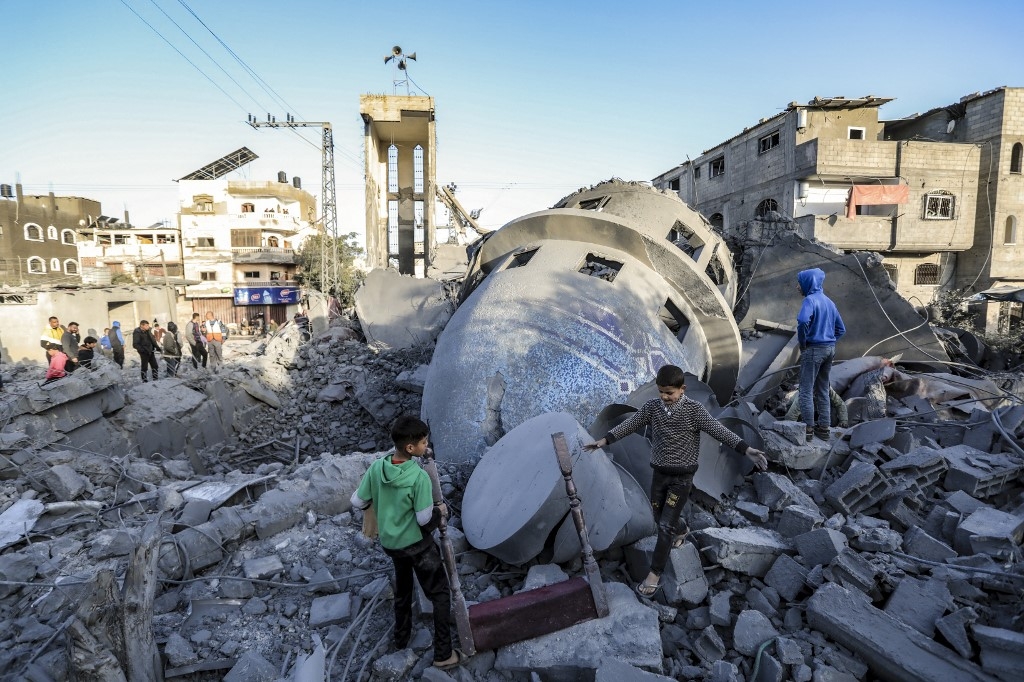
The life of Shaima al-Sawaf was turned upside down in an instant.
The 38-year-old, who has lived in Jordan since her marriage in 2013, lost 50 members of her family after an Israeli missile weighing hundreds of kilograms struck their home in Gaza.
The Al-Sawaf family is one of hundreds of families in the Gaza Strip that have been partially or wholly wiped out by Israel's bombardment of the enclave since 7 October.
Last summer, Shaima visited her family in Gaza. She spent weeks with them as if she were saying goodbye without knowing it.
Among those killed were:
New MEE newsletter: Jerusalem Dispatch
Sign up to get the latest insights and analysis on Israel-Palestine, alongside Turkey Unpacked and other MEE newsletters
-
Her father, Mustafa
-
Her mother, Maha
-
Her brothers, Mahmoud, Montaser, Marwan, and Ahmed
-
Her nieces and nephews, Bara’, Maha, Karam, Shahd, and Omar
-
Her sister-in-law, Zein.
Omar was the youngest, at only 18 months old, while a number of her uncles, cousins and their wives also lost their lives.
The bad news arrived quickly.
Hours after the bombing, Shaima was able to call her cousin, who continued to cry bitterly down the phone.
Shaima's husband took the phone and spoke to him, then fell silent, ended the call, and tears began to flow down his cheeks.
“I went crazy, I lost my nerve, I started screaming, ‘Tell me who among them died,’" recalled Shaima.
"He said desperately: ‘All of them.’ I had a nervous breakdown and didn’t feel anything around me after that."
More than 30,000 Palestinians have been killed in the ongoing Israeli assault, while more than 70,000 have been injured, according to the Palestinian Ministry of Health.
Forty days before the start of the Israeli assault, Shaima left for her home in Amman.
When she met her husband, a refugee from Jaffa, and left Gaza, she felt that she had left a piece of her heart behind - but she remained in daily contact with her family for hours, following their news and sharing their events from a distance.
“The war began with a constant anxiety inside me. I could barely sleep as I watched the news and the sights of the Israeli bombing, which didn’t differentiate between man, woman, child, elderly, sick and wounded," she said.
“If I hadn’t left, if I had stayed and died with them!”
'I did nothing but pray and cry'
With the beginning of the Israeli air strikes, Shaima's long calls to her family turned into short words just to make sure they were okay.
The family left their home in the Sheikh Ajlin neighbourhood when the bombing intensified, and moved to a residential building in the Al-Tuffah area where Shaima’s uncles live, and where her father also had an apartment.
At dawn on 18 November, Shaima read the news that a residential building had been targeted in the same area. She was terrified and started crying while trying to contact her family, but no one answered.
'I am still in pain like the first day after the massacre. I talk to their pictures and imagine them next to me'
- Shaima al-Sawaf
“My anxiety and fear increased. My husband tried to calm me down, but I felt a disaster was approaching. Communications were cut off from Gaza and I knew nothing. I didn’t sleep, I didn’t eat, I did nothing but pray and cry,” she said.
Due to the lack of facilities and the imposed siege, the civil defence crews were unable to work effectively at the site of the bombing.
The whole family was stuck under the rubble and were extracted dead, except for Zaid, aged eight, the son of Mahmoud, who was killed with his wife and the rest of their children.
Shaima describes what happened as an unforgettable tragedy. Little by little, the news began to reach Shaima.
The next day, she received word of the survival of her brothers Montaser, Marwan, Moataz, and Muhammad, who were injured.
Montaser, her journalist brother - who lost one of his eyes in the bombing - called and began to console her and reassure her about him and the rest of her siblings who had survived.
“I continued to cling to the hope that a number of my siblings had survived, despite my intense pain over the loss of my parents and my nephews. I spoke every day with Marwan and Montaser, and I didn’t know that these were farewell calls to them as well!”
On 1 December, an Israeli plane bombed the Al-Daraj neighbourhood in Gaza City, killing Montaser, Marwan, and a number of their relatives.
Montaser remained bleeding for about half an hour without any ambulances being able to reach him.
A deep wound
Rayyan, 10, one of Shaima’s three children, sits in his room in Amman and cries hard.
"He loved his cousins very much and talked to them constantly. He had a special relationship with my father," said Shaima.
"I am still in pain like the first day after the massacre. I talk to their pictures and imagine them next to me."
The most painful thing for Shaima is that she couldn't look at them one last time before burying them, because of the war and siege.
"Gaza is everything I love and it has the smell of my family and their memories," she said, adding she hoped to return one day.
Shaima is left with only her two brothers, Moataz and the injured Muhammad, who needs to travel for treatment but still can’t.
She talks to them daily and they try to heal their wounds together by remembering the family members, amid constant fear due to the continued Israeli aggression.
Before the war began, due to a glitch in her phone, Shaima lost her photos of her family and was unable to recover them.
"I got very angry and cried more. I want to look at them again, but I don't have all the pictures. Our first house was completely bombed and turned into rubble, and all my brothers' phones were crushed by that."
Today, Shaima lives a severely diminished life.
Despite everything that has happened, she says that she is still waiting for one of them to contact her - even if the wait is forever.
This article is available in French on Middle East Eye French edition.
Middle East Eye delivers independent and unrivalled coverage and analysis of the Middle East, North Africa and beyond. To learn more about republishing this content and the associated fees, please fill out this form. More about MEE can be found here.


